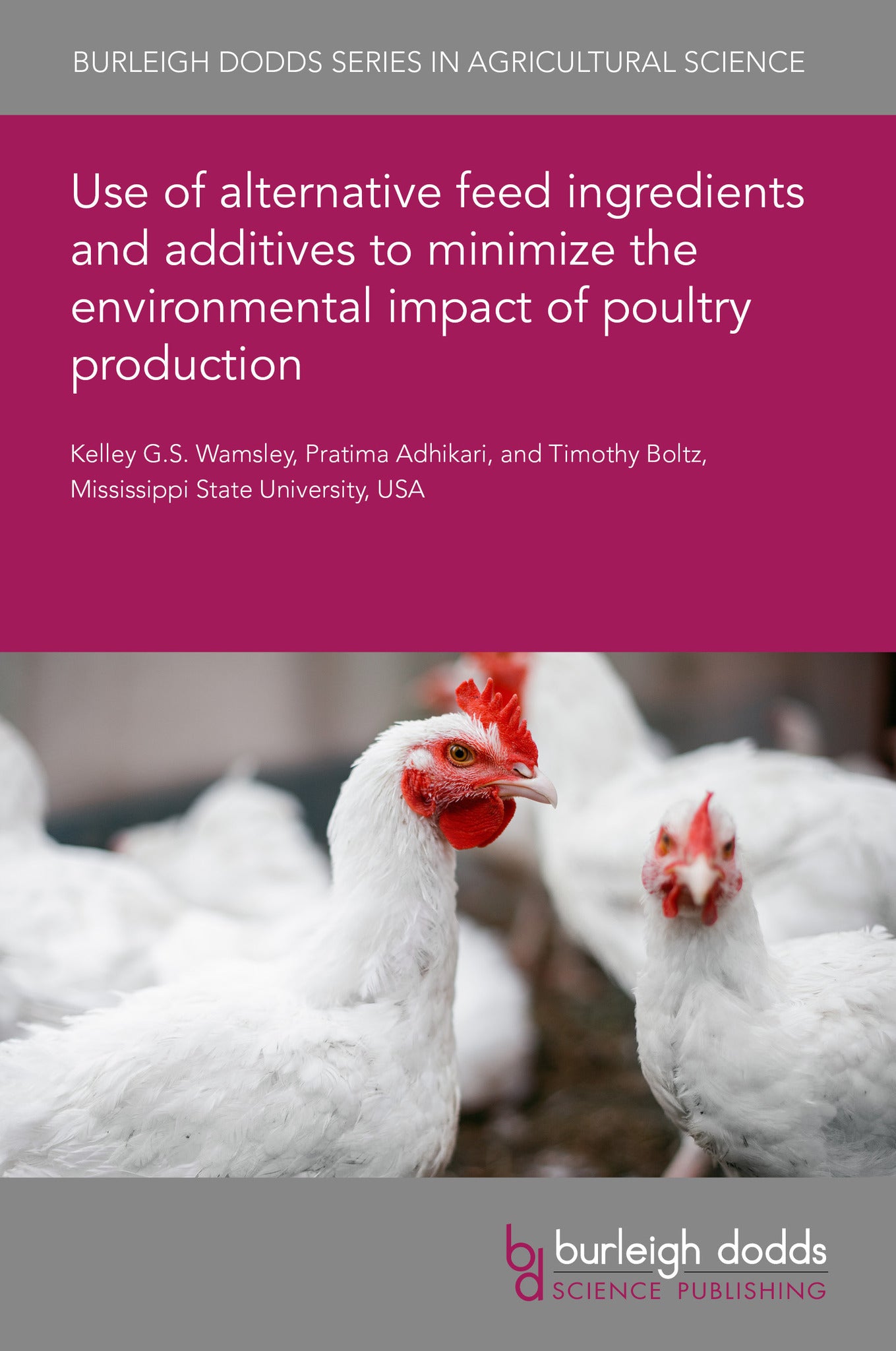We're sorry. An error has occurred
Please cancel or retry.
Use of alternative feed ingredients and additives to minimize the environmental impact of poultry production

Some error occured while loading the Quick View. Please close the Quick View and try reloading the page.
Couldn't load pickup availability
- Format:
-
09 April 2025

This chapter discusses the potential use of more sustainable alternative feed ingredients in poultry feed. It introduces the range of alternative protein-contributing ingredients, including crop sources such as legumes, peas and beans, as well as by-products from food and oilseed processing such as oil palm kernel and cottonseed meal, as well animal sources such as feather and blood meal. It also looks at potential energy/fiber-contributing ingredients such as bakery meal, food waste and fiber co-products such as hulls, pulp and bran. The chapter then discusses the role of exogenous feed enzyme additives (phytase, carbohydrase and protease) in counteracting anti-nutritional factors in alternative feeds and optimizing release of nutrients. Finally the chapter assesses the role of prebiotics, probiotics, synbiotics and precision biotics in optimizing gut function for improved feed utilization.

TECHNOLOGY & ENGINEERING / Agriculture / Animal Husbandry, Poultry farming, TECHNOLOGY & ENGINEERING / Agriculture / Sustainable Agriculture, Sustainable agriculture

- 1 Introduction
- 2 Alternative protein-contributing ingredients
- 3 Alternative energy/fiber-contributing ingredients
- 4 Exogenous feed enzyme additives: phytase, carbohydrase, and protease
- 5 Additives to promote gut health for improved sustainability: prebiotics, probiotics, synbiotics, and precision biotics
- 6 Conclusion
- 7 References



